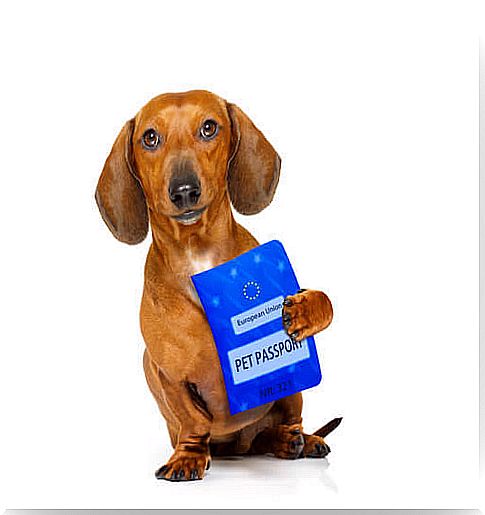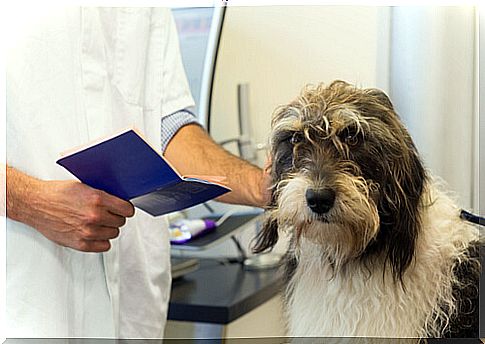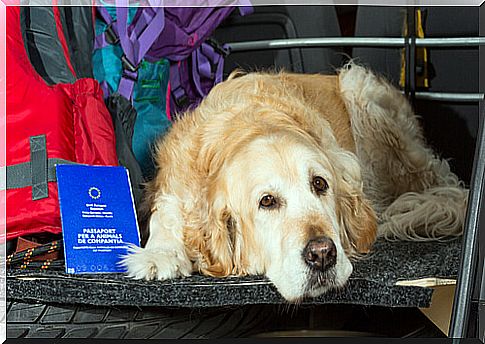Documentation Required To Travel With Pets Outside And Within The EU

Fortunately, it is becoming easier to travel with pets outside and within the European Union. Airlines, hotels, businesses and cultural sites are becoming increasingly flexible with regard to the presence of animals in their facilities.
However, before traveling with your pet, it will be essential to have the necessary documentation to transport it and to enter your destination. To help you, we will summarize in this article everything you need to know before traveling with your best friend.
Useful pre-trip information
To travel with pets, the first thing to do is to know the requirements of the destination for entry with animals, since each country or community may have its own legislation in this regard.
It is always advisable to look for this information in advance to prepare the necessary procedures and documents. Especially when traveling with exotic pets or breeds of dogs considered potentially dangerous.
Most countries and communities set a limit on the number of pets with which a person can enter their territory. In the case of the EU, current regulations say that each person can travel with up to five animals. But there are exceptions in the case of travel for contests, competitions or exhibitions.
In the case of air travel, it will also be necessary to find out which companies accept transporting your pet. Companies such as Air Europa and Iberia allow pets to travel in the cabin with their owners.
It must be taken into account that the maximum weight of the animal added to the carrier must be eight kilos, and the dimensions of the carrier cannot exceed 50 centimeters in length, 40 in width and 20 in depth.
On the other hand, there are companies that only offer the service of transporting animals in the warehouse, regardless of their weight, size or breed. In addition, some companies do not accept transporting potentially dangerous dogs, and there are those that do not directly allow animals on board.

Documentation required to travel with pets in the EU
To enter any country of the European Union, each owner must carry the following duly updated documentation of their pet :
- European Passport for Companion Animals: the official document of your pet must be signed and stamped by a registered veterinarian. In its content, the data of the pet and its owner, the number of its microchip , the vaccines administered to the animal with the date of application and the required technical specifications must be specified.
- Compulsory vaccines: to enter the EU member countries, the only compulsory vaccine is the rabies vaccine. The application must be made at least 21 days before the date of the trip, and its maximum duration is one year.
- Deworming: the dog is required to have received an antiparasitic treatment (more specifically against tapeworms), at most three or five days before the trip.
- Blood sample: some countries, such as the UK, used to ask for a blood test to be performed 30 days after vaccination against rabies. It is worth checking if your destination requires this requirement.
- Homologated microchip : pets traveling to the EU must be properly identified with anhomologated microchip . The device housed under the skin of the animal must comply with the requirements of ISO 11784 or annex A of ISO 11785.
To find out how to issue the European Passport for Companion Animals, we advise you to read the information offered by the Official College of Veterinarians of Madrid, which details the requirements for carrying out this procedure. To access the COVM information, just click here.

Requirements for traveling with pets outside the EU
Some countries that are not members of the EU may require the presentation of an official certificate for entry with pets into their territory. Again, we recommend consulting the specific regulations of your destination to know precisely the procedures that are necessary.
Here is a summary of the basic documentation for traveling with pets outside the EU:
- Updated health card : which must include the vaccines, deworming, and eventual treatments and surgical interventions to which the animal was subjected.
- Good health certificate : which must be issued by a veterinarian with a validity of 7 or 10 days, depending on the country.
- Vaccines : the vast majority of countries only require the rabies vaccine. But vaccines against distemper, parvovirus, hepatitis, or leptospirosis may also be required.
- Deworming : it is recommended that they be done in the same week of the trip, a maximum of five days before.
- Official certificate : it is equivalent to the European passport, which must be issued by the competent body of the country after the presentation of the certificate of good health of the animal. Some countries require that the pet be present at the time the certificate is issued.
With this information, it will be easier to enjoy the holidays with your best friend. Also, remember that your pet must adapt to the carrier at least one month before the trip.









